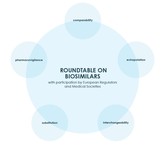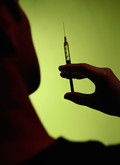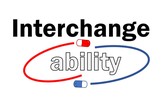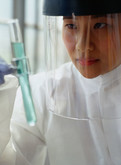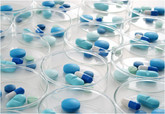Biosimilars/Research
Improving biosimilar use in clinical practice
Uncertainty about biosimilars and lack of motivation among healthcare providers and patients to use them may have been curbing biosimilar use. Guidance on how to implement biosimilars in clinical practice and how to incentivize stakeholders to use biosimilars may help to realize the benefits offered by biosimilars for healthcare systems and patients.
Improving stakeholder understanding about biosimilars
The arrival of biosimilars provides benefits for healthcare systems and patients by lowering treatment costs and improving patient access to biologicals. Despite these benefits and demonstrated comparability with the reference biological, the use of biosimilars varies across regions and remains limited in some cases. This may be partially due to a lack of knowledge and understanding among healthcare professionals and patients about biosimilars, limiting their willingness to use them.
Interchangeability, naming and pharmacovigilance of biosimilars
Results of a survey was carried out by the World Health Organization (WHO) revealed that challenges still remain when it comes to the regulatory evaluation of biosimilars [1].
Improving the understanding of biosimilars through education
The process of introducing biosimilars into clinical practice is complex and involves many stakeholders. There are different strategies that healthcare systems have adopted to incorporate biosimilars into patient care. Regulators, payers, pharmacists, and physicians need adequate knowledge in order to be effective components of this process. Previous research in the region has shown a high prevalence of lack of understanding and major safety concerns on the use of biosimilars [1].
Understanding and minimizing injection-site pain for biologicals
Biologicals have revolutionized treatment across a range of immune and inflammatory-related diseases and have had considerable impact on the health economy. Switching to a biosimilar has proven to be an effective, safe and pharmacoeconomically advantageous strategy for health systems.
Clinical evidence for interchangeability of biosimilars in the US
In the United States, the Food and Drug Administration (FDA) approval of a biosimilar is based on the ‘totality of the evidence’ from comparative analytical and functional assessments and comparative clinical (pharmacology, immunogenicity, safety and efficacy) assessments that support a conclusion of biosimilarity [1]. An approved biosimilar can also be designated as ‘interchangeable’ if it can be concluded that the biosimilar is expected to produce the ‘same clinical result as the reference product in any given patient’ and there is no increased risk in terms of safety or diminished efficacy associated with switching or alternating between the biosimilar and reference product (RP) [2]. With such designation, an interchangeable biosimilar could be substituted for its RP at the pharmacy level where state law allows [2].
How organizations worldwide are producing HTA reports for biosimilars
The vital contribution of Health Technology Assessment (HTA) is well recognized and consolidated in scientific and technological practice; however, there is still no generally accepted position on its utilization in relation to biosimilars.
Influence of local policy measures and practices on biosimilar/originator market dynamics in Germany
In Europe, the individual Member States are responsible for designing policies that regulate the market entry and use of pharmaceuticals. This decentralized approach has been found to contribute to variations in biosimilar uptake across countries, and even within countries, as was investigated for tumour necrosis factor-alfa (TNF-α) inhibitor biosimilars in Sweden [1, 2]. In Germany, biosimilar market shares are also known to vary at the regional level. This was studied by Blankart et al. for erythropoiesis-stimulating substances, filgrastim and somatropin, and variations in biosimilar market shares were partly attributed to the presence of explicit regional cost-control measures, such as quota regulations [3]. Differences in the uptake of biosimilars have also been described in Germany for the class of TNF-α inhibitors, although reasons behind this variable uptake have not been examined in detail [4].
Positive phase III results for sintilimab plus copy biological Byvasda
Chinese biopharmaceutical firm Innovent Biologics (Innovent) announced on 23 November 2020 positive results for its copy bevacizumab biological Byvasda (IBI-305) in combination with sintilimab.
More national guidance needed on biosimilars in Europe
A poster presented at the Virtual ISPOR (International Society for Pharmacoeconomics and Outcomes Research) 2020 conference outlines the importance of regulatory guidance on biosimilar medicines in Europe.
Phase I study comparing SB8 with reference bevacizumab
SB8, developed by Samsung Bioepis, was approved as a biosimilar of the reference product Avastin (bevacizumab) by the European Commission in August 2020 with the brand name of Aybintio [1]. The objective of this phase I study was to compare the pharmacokinetics, safety, tolerability and immunogenicity between SB8 and the European Union (EU) and United States (US) reference products (bevacizumab-EU and bevacizumab-US).
Scientific, legal and regulatory challenges facing biosimilars development
Abbreviated approval pathways for biosimilars – biological products that are highly similar to an originator biological with regard to quality, safety and efficacy [1, 2] – were created to foster competition and lower prices for biological treatments. However, these desired effects have not materialized as quickly as expected in either the US or the European Union.
Safety monitoring for immune-modulating biologicals
A study of adverse events among patients with autoimmune disease identifies numerous cases of serious infection. The study also demonstrates the ability of the Biologics and Biosimilars Collective Intelligence Consortium (BBCIC) to function as a surveillance platform [1].
Real-world data on biosimilars in inflammatory arthritis treatment
The use of biologicals in patients with rheumatic diseases has achieved the therapeutic target, i.e. remission or low disease activity. The share of biologicals has been growing with the approval of biosimilars, which have been recognized for their equivalent efficacy, safety, pharmacokinetics and immunogenicity to the originator, as well as their reduced economic burden.
Study reveals wide variation in US state drug product substitution laws
A new study, published in JAMA Internal Medicine [1], has revealed substantial variation in the drug product substitution rules for pharmacists across states in the US.
Asia Pacific countries: future demand for biosimilars
The prevalence of chronic diseases like diabetes, cancer and rheumatoid arthritis have been increasing globally, resulting in an ever-growing need for biologicals that are affordable and accessible in the Asia Pacific countries (APAC). Biosimilars are ‘similar’ versions of approved and authorized biological medicines that are already on the market. They typically sell at discounts ranging from 20% to 35% when compared to the reference product [1]. It is expected that introduction of biosimilars into the global markets will erode the total sales of biologicals by as much as 54% through 2022 [2]. Various regulatory bodies such as the European Medicines Agency (EMA), the US Food and Drug Administration (FDA) and the World Health Organization (WHO) actively regulate development and commercialization of biosimilars.
Biopharmaceuticals and biosimilars: regulatory challenges for global harmonization of GMP standards
A recent GaBI Journal [1] article by Sia et al. has explored biopharmaceutical good manufacturing practice (GMP) standards around the globe. The authors uncovered the challenges faced in attempting to achieve global harmonization of biopharmaceutical GMP standards.
Discontinuation following biosimilar switching in IBD patients
Medical management of inflammatory bowel diseases (IBD) has significantly improved since the introduction of biological therapies over the past 20 years. The adoption of biologicals in IBD care has led to an exponential increase in treatment-related costs, resulting in a huge economic impact. As the patents of older biologicals expire, the interest in marketing comparable versions of the reference products increases, enabling opportunities for the development of similar biological products. Biosimilars have the potential to expand access to biological therapies due to price competition and cost savings [1].
Global harmonization of GMP standards for biologicals
Biopharmaceuticals are complex as their active pharmaceutical ingredient (API) is manufactured using living systems. In turn, this leads to complex manufacturing processes. A recent GaBI Journal [1] article by Sia et al. has investigated the good manufacturing practice (GMP) standards of various global regulatory authorities (RAs) and international organisations (IOs). It has revealed that we are well on the way to global harmonization of GMP standards that will help bring these products to more people across the globe.
A blueprint for biosimilar assessment without efficacy trials
Comparative efficacy trials have played an important role in biosimilarity assessments. However, with recent technological advances, their role is now being questioned. Research published in Drug Discovery Today [1] outlines the reasons why biosimilar assessments can now be carried out without these trials [2, 3]. It also lays out the requirements for prospective applications without efficacy trials.

